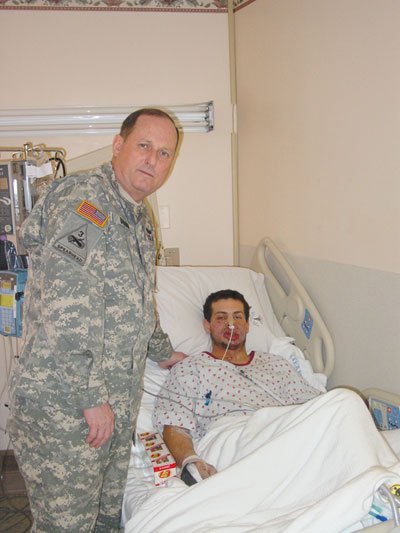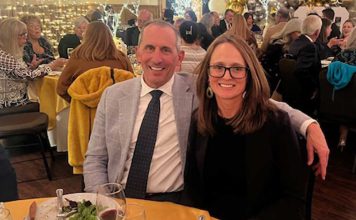Morgan Hill
– Reports of shoddy medical care at the nation’s top Army
hospital angered Congress last week, but an injured Morgan Hill man
recovering at Walter Reed Army Medical Center in Washington, D.C.
insists the story’s overblown.
Morgan Hill – Reports of shoddy medical care at the nation’s top Army hospital angered Congress last week, but an injured Morgan Hill man recovering at Walter Reed Army Medical Center in Washington, D.C. insists the story’s overblown.
“The care here is top-notch,” said U.S. Army medic David Shebib, 23, in a phone interview last Tuesday from the now-infamous Washington hospital where he continues to recover from a roadside bomb blast that severed one of his arteries and broke several bones last December. “There were a couple of people who complained, and it got blown out of proportion.”
News of a backlog of maintenance projects, bewildering bureaucracy and shabby treatment for veterans at Walter Reed broke last week when soldiers and their families complained to the Washington Post and other media outlets about their ordeals securing benefits. The emotional reports angered Congress and forced hearings on the matter. The Bush Administration reacted swiftly by firing two top Army officials last week in the wake of the scandal.
Still, David’s dad, 69-year-old Vietnam war veteran George Shebib, suspects the Walter Reed story has become an “overblown” attack on President Bush and the Iraq war, coming on the heels of the president’s unpopular decision to send 20,000 more troops into combat.
“My family has not experienced the negativity that’s been generated,” said the father, who’s spent much of the last two months at his son’s side. “In my opinion, part of the problem is a lot of the parents of soldiers can’t be there with their sons. I am 69, but most parents of 23-year-olds are in their 40s and they have to work.”
For the last month the younger Shebib has stayed at an outpatient facility a few blocks from the hospital. The building has not been cited for moldy rooms, a problem for other parts of the Walter Reed complex, but soldiers housed there have complained of unclear procedures for making their own doctor’s appointments.
The senior Shebib said he’s sympathetic to some concerns. The bureaucratic maze at Walter Reed is daunting, he said, and he’s seen problems arise when wounded soldiers don’t have anyone to help them navigate the Army’s plodding health care system.
“I have seen a couple of people in that situation, people with brain injuries,” he said. “I think they really need someone with them. It’s kind of tough to get around, and you have to make appointments, fill out paper work … I guess it’s easy for someone who’s not feeling well to just give up.”
He added: “I’m an old veteran, and I don’t have a problem walking up to a colonel in charge of surgery and saying, ‘my son has a 9am appointment and it’s 9:45. What the hell’s going on?’ The younger guys can’t do that.”
At a Congressional hearing Monday at Walter Reed witnesses speaking on behalf of patients complained of too much bureaucracy and moldy hospital rooms. The Los Angeles Times reported Sgt. John Daniel Shannon, who was shot in the head during a firefight near Ramadi in November 2004, told Congressional representatives “so many soldiers get so frustrated with the process they will sign anything presented to them just so they can get on with their lives.”
Shebib, a 2002 Central Continuation High School graduate, is also eager to move on. He’s enjoyed strong support and the constant company from his parents and brother for the past two months. He’s fielding calls and e-mails from colleagues overseas and hopes to rejoin his unit in Alaska next October. He’s in fair condition, he said, awaiting a bone graph on his upper jaw and an operation on his right eye to restore damaged vision.
“I want to stay in the Army and do what I can,” said Shebib, sounding upbeat. “But if I can’t do the job I’ll get out of the Army.”
A fund drive for the Shebib family has raised about $4,500 since it was established Jan. 8 by co-workers of David’s mom at Hitachi Global Storage Technologies in San Jose.














